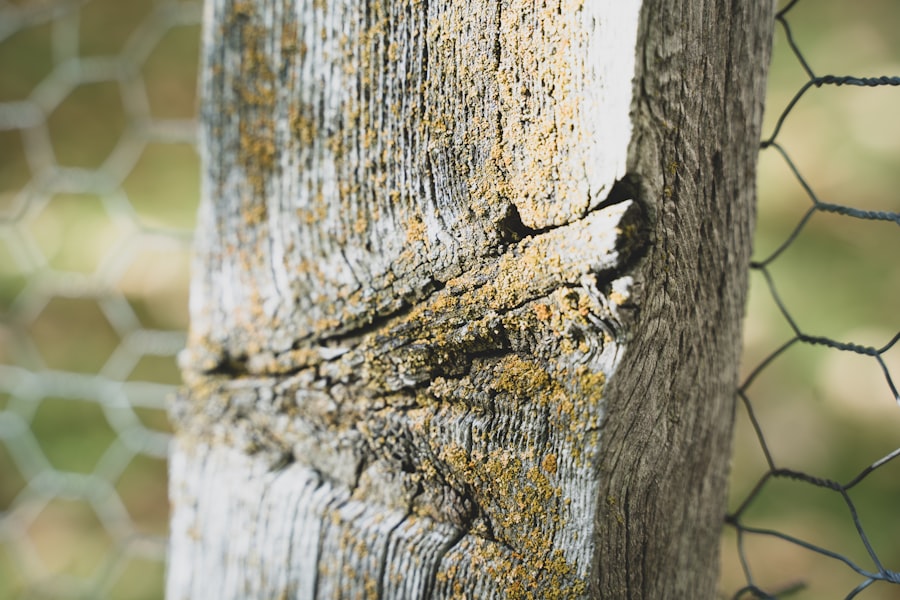Chickens are natural foragers with a diverse diet that includes grass seed. While this behavior may seem innocuous, it can have negative consequences for lawns and gardens. When chickens consume grass seed, they impede grass growth and disrupt soil conditions, making it challenging for new grass to establish.
Their pecking and scratching activities can also create bare patches, compromising the lawn’s appearance. Understanding the motivations behind this behavior is essential for developing effective preventive measures. Several factors may contribute to chickens eating grass seed.
Nutritional deficiencies in their regular diet, particularly insufficient protein or other essential nutrients, may drive chickens to seek alternative food sources like grass seed. Boredom and overcrowding in their living environment can also lead to this behavior. Addressing these underlying issues is crucial for successfully deterring chickens from consuming grass seed and preventing damage to lawns and gardens.
Table of Contents
- 1 Creating a Barrier: Fencing and Netting
- 2 Distracting Chickens: Providing Alternative Food Sources
- 3 Using Natural Deterrents: Planting Strong-smelling Herbs
- 4 Training Chickens: Using Positive Reinforcement
- 5 Supervising Chickens: Monitoring their Behavior
- 6 Seeking Professional Help: Consulting a Veterinarian or Animal Behaviorist
- 7 FAQs
- 7.1 What are some methods to keep chickens from eating grass seed?
- 7.2 Why is it important to keep chickens from eating grass seed?
- 7.3 Are there any natural deterrents to keep chickens from eating grass seed?
- 7.4 How can I train my chickens to avoid eating grass seed?
- 7.5 What are the potential consequences of chickens eating grass seed?
Key Takeaways
- Chickens eating grass seed can lead to poor grass growth and potential health issues for the chickens.
- Fencing and netting can be effective barriers to prevent chickens from accessing grass seed.
- Providing alternative food sources like grains and vegetables can distract chickens from eating grass seed.
- Planting strong-smelling herbs like lavender and mint can naturally deter chickens from eating grass seed.
- Using positive reinforcement techniques can help train chickens to avoid eating grass seed.
Creating a Barrier: Fencing and Netting
Enclosing the Area
One effective way to prevent chickens from eating grass seed is to create a physical barrier using fencing or netting. By enclosing the area where the grass seed is planted, you can effectively keep the chickens out and protect the seeds from being consumed.
Selecting the Right Materials
When choosing fencing or netting, it is important to select materials that are sturdy and tall enough to prevent the chickens from flying over or squeezing through. Additionally, it is crucial to secure the bottom of the fencing or netting to prevent the chickens from digging underneath and gaining access to the grass seed.
Providing an Alternative Space
Fencing and netting can also be used to create designated areas for the chickens to forage, allowing them to satisfy their natural instincts without causing damage to your lawn and garden. By providing an alternative space for the chickens to roam and peck, you can effectively redirect their behavior away from the grass seed.
Promoting a Healthier Environment
This not only protects your grass seed but also promotes a healthier environment for your chickens to thrive in.
Distracting Chickens: Providing Alternative Food Sources

Another effective strategy for preventing chickens from eating grass seed is to provide them with alternative food sources. By offering a diverse range of nutritious treats and foraging opportunities, you can satisfy their natural instincts and reduce their inclination to consume grass seed. Consider introducing fresh fruits and vegetables, mealworms, or specially formulated chicken treats into their diet.
These treats not only provide essential nutrients but also serve as a distraction, redirecting their attention away from the grass seed. In addition to providing alternative food sources, you can also create designated foraging areas with a variety of natural materials such as straw, hay, or wood chips. These materials not only stimulate the chickens’ natural foraging behavior but also help keep them entertained and engaged.
By enriching their environment with stimulating activities and diverse food options, you can effectively discourage them from eating grass seed and minimize the damage to your lawn and garden.
Using Natural Deterrents: Planting Strong-smelling Herbs
Planting strong-smelling herbs around the perimeter of the grass seed area can serve as a natural deterrent to prevent chickens from consuming the seeds. Chickens have a keen sense of smell and are sensitive to strong odors, making them less likely to approach areas with pungent scents. Consider planting herbs such as lavender, mint, rosemary, or thyme, which not only emit strong fragrances but also have natural insect-repelling properties.
In addition to serving as a deterrent for chickens, these herbs can also provide added benefits for your garden by attracting beneficial insects and pollinators. By strategically incorporating these herbs into your garden landscape, you can create a natural barrier that protects your grass seed while enhancing the overall biodiversity of your outdoor space. This approach not only addresses the issue of chickens eating grass seed but also promotes a sustainable and eco-friendly solution for managing your garden.
Training Chickens: Using Positive Reinforcement
Training your chickens using positive reinforcement techniques can be an effective way to discourage them from eating grass seed. By rewarding desirable behaviors with treats or praise, you can encourage your chickens to engage in alternative activities and develop new habits. For example, you can use a clicker or verbal cue to signal when the chickens are exhibiting positive behaviors such as foraging in designated areas or avoiding the grass seed.
By consistently reinforcing these behaviors with rewards, you can gradually shape their behavior and reduce their inclination to consume grass seed. It is important to be patient and consistent when training chickens, as it may take time for them to learn and adapt to new behaviors. By using positive reinforcement methods, you can establish a strong bond with your chickens and create a harmonious environment where they can coexist with your lawn and garden without causing damage.
Supervising Chickens: Monitoring their Behavior

Direct Supervision: The Key to Identifying Issues
Regularly monitoring the behavior of your chickens can help you identify any potential issues or concerns related to them eating grass seed. By observing their activities and interactions within the outdoor space, you can gain valuable insights into their behavior patterns and make informed decisions about how to manage their access to the grass seed. Additionally, supervising your chickens allows you to intervene promptly if you notice any signs of destructive behavior or excessive foraging in areas where they should not be.
Enhancing Monitoring with Technology
In addition to direct supervision, installing surveillance cameras or motion-activated sensors can provide an extra layer of monitoring and help you keep track of your chickens’ behavior even when you are not physically present.
Proactive Prevention: Maintaining a Healthy Lawn and Garden
By staying vigilant and proactive in supervising your chickens, you can effectively prevent them from eating grass seed and maintain the health and integrity of your lawn and garden.
Seeking Professional Help: Consulting a Veterinarian or Animal Behaviorist
If you are struggling to address the issue of chickens eating grass seed despite implementing various strategies, it may be beneficial to seek professional help from a veterinarian or animal behaviorist. A veterinarian can assess the overall health and nutritional needs of your chickens, identifying any underlying factors that may be contributing to their behavior. They can provide valuable guidance on optimizing your chickens’ diet and addressing any health concerns that may be influencing their foraging behavior.
An animal behaviorist can offer expert insights into understanding the motivations behind your chickens’ behavior and provide tailored recommendations for modifying their habits. By conducting a thorough assessment of your chickens’ environment and social dynamics, an animal behaviorist can help you develop a customized plan for managing their behavior and preventing them from eating grass seed. In conclusion, preventing chickens from eating grass seed requires a multifaceted approach that addresses their nutritional needs, environmental enrichment, and behavioral management.
By understanding the underlying reasons behind this behavior and implementing effective strategies such as creating barriers, providing alternative food sources, using natural deterrents, training, supervision, and seeking professional help when needed, you can successfully protect your lawn and garden while promoting the well-being of your chickens. With patience, consistency, and a proactive mindset, you can create a harmonious balance between your chickens’ natural instincts and the preservation of your outdoor space.
If you’re struggling to keep your chickens from eating grass seed, you may want to consider building a chicken coop with a designated grazing area. According to a helpful article on Poultry Wizard, a well-designed chicken coop can help prevent chickens from destroying grass seed by providing them with a separate area for grazing. Check out their article on chicken coop design tips for more information on creating a suitable environment for your feathered friends.
FAQs
What are some methods to keep chickens from eating grass seed?
Some methods to keep chickens from eating grass seed include using chicken wire to create a barrier, using a chicken tractor to move the chickens to a different area, and providing alternative sources of food to distract the chickens.
Why is it important to keep chickens from eating grass seed?
It is important to keep chickens from eating grass seed because it can prevent the grass from growing and establishing a healthy lawn or pasture. Additionally, consuming large amounts of grass seed can cause digestive issues for the chickens.
Are there any natural deterrents to keep chickens from eating grass seed?
Some natural deterrents to keep chickens from eating grass seed include planting herbs or other plants that chickens do not like the taste of, such as lavender or rosemary, around the grass seed area. Additionally, using natural repellents like citrus peels or vinegar can help deter chickens from eating grass seed.
How can I train my chickens to avoid eating grass seed?
You can train your chickens to avoid eating grass seed by providing them with plenty of alternative sources of food, such as grains, fruits, and vegetables. Additionally, using positive reinforcement, such as treats or praise, when they avoid the grass seed can help reinforce the behavior.
What are the potential consequences of chickens eating grass seed?
The potential consequences of chickens eating grass seed include preventing the grass from growing, leading to bare patches in the lawn or pasture. Additionally, consuming large amounts of grass seed can cause digestive issues for the chickens and may lead to health problems.
Meet Walter, the feathered-friend fanatic of Florida! Nestled in the sunshine state, Walter struts through life with his feathered companions, clucking his way to happiness. With a coop that’s fancier than a five-star hotel, he’s the Don Juan of the chicken world. When he’s not teaching his hens to do the cha-cha, you’ll find him in a heated debate with his prized rooster, Sir Clucks-a-Lot. Walter’s poultry passion is no yolk; he’s the sunny-side-up guy you never knew you needed in your flock of friends!







